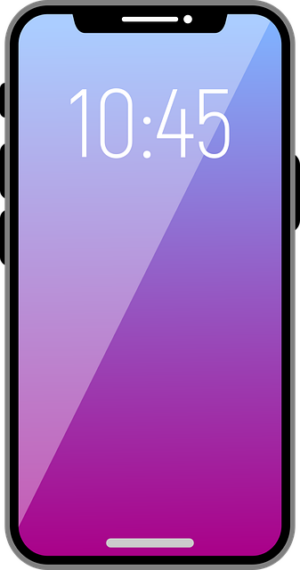In Laconia, New Hampshire, unwanted robocalls have become a significant issue, prompting consumers to seek legal help from lawyers for robocall lawsuits. Regulators are introducing stricter consumer protection laws against automated calls, with the Federal Communications Commission (FCC) clarifying consent rules. Both state and federal laws, notably the Telephone Consumer Protection Act (TCPA), protect residents from unsolicited messages, with severe penalties for violators. Businesses must navigate these changes to avoid legal consequences, while consumers can take action by registering on the National Do Not Call Registry and consulting specialized lawyers for robocall in New Hampshire for guidance and litigation options.
In today’s digital age, unwanted phone calls, particularly from automated systems (robocalls), have become a significant concern in Laconia, New Hampshire. This article explores recent developments in consumer protection laws aimed at curbing this growing issue. From new regulations to lawyer perspectives and consumer rights, we delve into how Laconia is navigating the complex landscape of robocalls. Discover important insights if you’re searching for legal help as a victim of robocalls in New Hampshire.
Unwanted Phone Calls: The Growing Concern in Laconia, New Hampshire

In recent years, unwanted phone calls have emerged as a significant concern in Laconia, New Hampshire. With the proliferation of automated robocall technology, residents are increasingly bombarded with marketing messages and fraudulent schemes, leading to a drop in overall consumer satisfaction. The volume and sophistication of these calls have prompted many to seek legal recourse, often turning to a lawyer for robocall in New Hampshire for guidance and protection.
The growing problem has not gone unnoticed by regulators who are now implementing stricter consumer protection laws. These new developments aim to safeguard citizens from intrusive and deceptive practices, ensuring that their privacy is respected and their communication channels remain uncluttered. As such, it’s crucial for both businesses and individuals to stay informed about these changes, especially those offering legal services in New Hampshire, to better assist clients affected by unwanted phone calls.
Recent Changes in Consumer Protection Laws

In recent years, consumer protection laws related to unwanted phone calls, particularly from automated dialers or robocalls, have seen significant developments across the United States, including New Hampshire. The Federal Communications Commission (FCC) has been at the forefront of these changes, aiming to protect consumers from intrusive and deceptive calling practices. One notable shift is the clarification of rules regarding consent for automated calls, with stricter guidelines on how businesses can obtain and use consumer phone numbers.
These updates have been driven by consumer complaints about excessive robocalls, as well as concerns over privacy and data security. As a result, many states, including New Hampshire, have implemented stricter penalties for violators, incentivizing compliance and empowering consumers with legal recourse through a lawyer for robocall lawsuits. This new landscape requires businesses to be more mindful of their calling practices to avoid legal repercussions.
How Robocalls are Regulated: A Lawyer's Perspective

In New Hampshire, the regulation of robocalls falls under the jurisdiction of both state and federal laws. From a lawyer’s perspective, the Telephone Consumer Protection Act (TCPA) is the primary legislation safeguarding consumers from unwanted phone calls, including automated or prerecorded messages. This law prohibits companies from making such calls without prior express consent from the recipient, ensuring that individuals can enjoy their personal time free from intrusive marketing efforts.
A lawyer for robocall cases in New Hampshire would advise that violations of these regulations can lead to significant penalties. Consumers who receive unsolicited robocalls have legal recourse and can file complaints with regulatory bodies or seek damages through litigation. The regulation of robocalls is continually evolving, necessitating lawyers specializing in this area to stay updated on the latest developments and ensure their clients’ rights are protected in an increasingly digital age.
Enforcement and Penalties for Violations

In Laconia, New Hampshire, enforcement of consumer protection laws related to unwanted phone calls is taken seriously. Violations can result in substantial penalties, including fines and other legal repercussions. If a business or individual is found guilty of making robocalls without proper consent, they may face civil lawsuits, with damages that can include actual losses suffered by the recipient, as well as punitive damages aimed at deterring future misconduct.
A lawyer for robocall in New Hampshire can provide guidance on navigating these complex legal issues. They can help businesses understand and comply with current regulations to avoid penalties and protect their reputation. For consumers who have experienced unwanted phone calls, consulting with an attorney specializing in consumer protection law is a crucial step towards seeking justice and stopping the harassment.
Rights of Consumers: What You Should Know

In Laconia, New Hampshire, consumers have rights when it comes to unwanted phone calls, especially those from automated or prerecorded messages, known as robocalls. According to recent amendments in consumer protection laws, residents are protected from these intrusive and often deceptive practices. If you’ve received robocalls, you have several options available. One course of action is to contact a lawyer for robocall in New Hampshire who specializes in these matters. Legal aid can be crucial in navigating the complex regulations surrounding consumer rights.
Consumers are entitled to have their phone numbers removed from call lists if they register their number on the National Do Not Call Registry. This federal list prohibits telemarketers from calling numbers listed there. Furthermore, state laws in New Hampshire offer additional safeguards against excessive or nuisance calls. Knowing your rights and taking proactive measures can help you avoid unwanted phone marketing and ensure a quieter, more peaceful communication experience.






